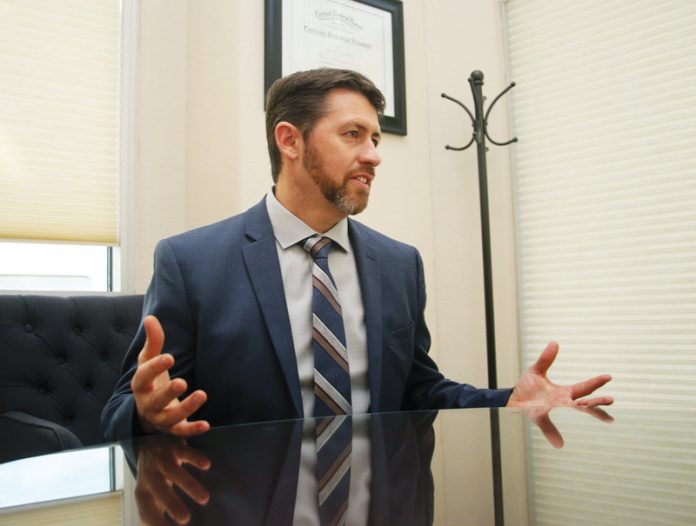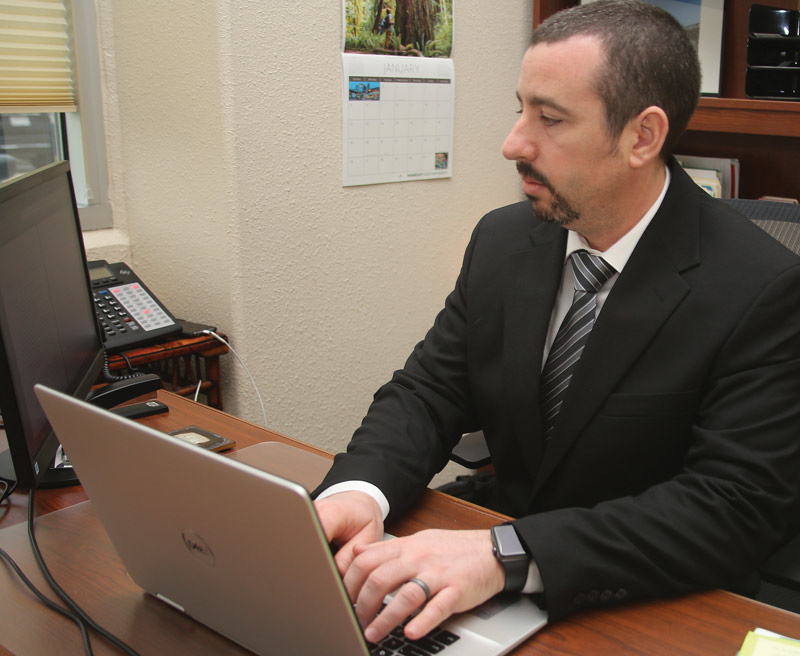
WATSONVILLE—For many, the New Year feels like a fresh start. Resolutions are written and promises made to make big changes for the future.
And most of these decisions—whether it’s traveling more or starting a membership at a local gym—have one thing in common: they all depend on financial stability.
Jacob Young is President and Chief Financial Planner at Watsonville’s Jacob Young Financial. He and his team answer peoples’ questions on all aspects of their financial life—from money saving tips to tax efficiency.
“There are a lot of investment managers out there,” Young said. “They talk about things like stocks and bonds… which is good, but there are other factors to consider. Everything is connected. Our goal is to bring all those things together.”
Young has been in the financial planning business since 1996. He moved to the area in 2000 and eventually started his own company.
In Young’s opinion, not everyone needs to hire a financial planner. In fact, if someone has the time and skills to do it themselves, he suggests they go for it. But getting help is always an option.
“As an example… I can do certain work around my house. I can mow my lawn,” he said. “But there are some things I don’t want to leave to chance, so I will hire a professional. I might be paying a bit more, but I know it’s going to be done right.”
Sizing down spending
The building blocks of a secure financial future start with budgeting and saving, Young said. This could be as easy as cutting back on very small things.
“People don’t always look at their budget realistically,” he said. “You might think you only go to Starbucks once in a while… but if you look closely at your bills, it might be a lot more.”
The average individual, Young said, should be saving about 10 percent of their salary. Whether through an online bank or by keeping a safe of physical money, saving is key.
Saving money can also be accomplished through your work. Many employers offer plans which place a portion of every paycheck into savings. This type of automation can be incredibly helpful, Young said.
“Most people tend to spend what they make,” he said. “But if there’s an automatic withdrawal, it’s not up to you to save that money. If it’s not coming directly to you, you won’t spend it.”

Risk and reward
Jacob Young Financial offers advice on financial investing—that is, putting your money into a certain asset in the hopes it will grow into a larger sum. Investments can reap rewards in the long term, but Young warns people to take precautions. Especially since financial markets are constantly changing.
“Really, it comes down to your personality,” Young said. “How much risk do you feel you can take, so you’re not panicking if things fluctuate? Some people invest in things that had good [tax] returns last year, and they think it’s going to stay the same. But every dog has its day. Nothing is guaranteed.”
This is why Young recommends people focus primarily on saving and managing their taxes correctly.
“Planning ahead will always be more important than investing,” Young said. “If you set goals, with realistic expectations, you’ll be in good shape.”
Troubles with taxes
Young said yearly taxes are where people make the most mistakes in planning their finances.
“Our nation’s tax system is unbelievably complex,” he said. “If you earn more, you pay more tax… but if you earn too much, it can take away a deduction. It creates more income you didn’t previously report.. so you’re taxed at a higher rate.”
Young has seen people sign up for all sorts of pre-taxed accounts and plans, ones promising large returns and immediate benefits.
“They’ll think it’s an open bank they can use whenever they want… and they won’t know their mistake until they get their yearly bill,” he said.
Young advises that people determine personal goals, and strategize their tax plan accordingly.
“Ask yourself what you are saving for, what is important to you,” he said. “It is one thing to accumulate money—it’s another to accumulate it in the right way.”
To the team at Jacob Young Financial, knowledge is the most important tool in becoming financially secure. But getting people involved isn’t always easy.
“The biggest problem is a lack of interest,” Young said. “It’s not fun to learn about finance… But there are things you’re going to have to do even though it’s not fun. Eat your financial vegetables.”
•••
To learn more visit jacobyoungfinancial.com.












